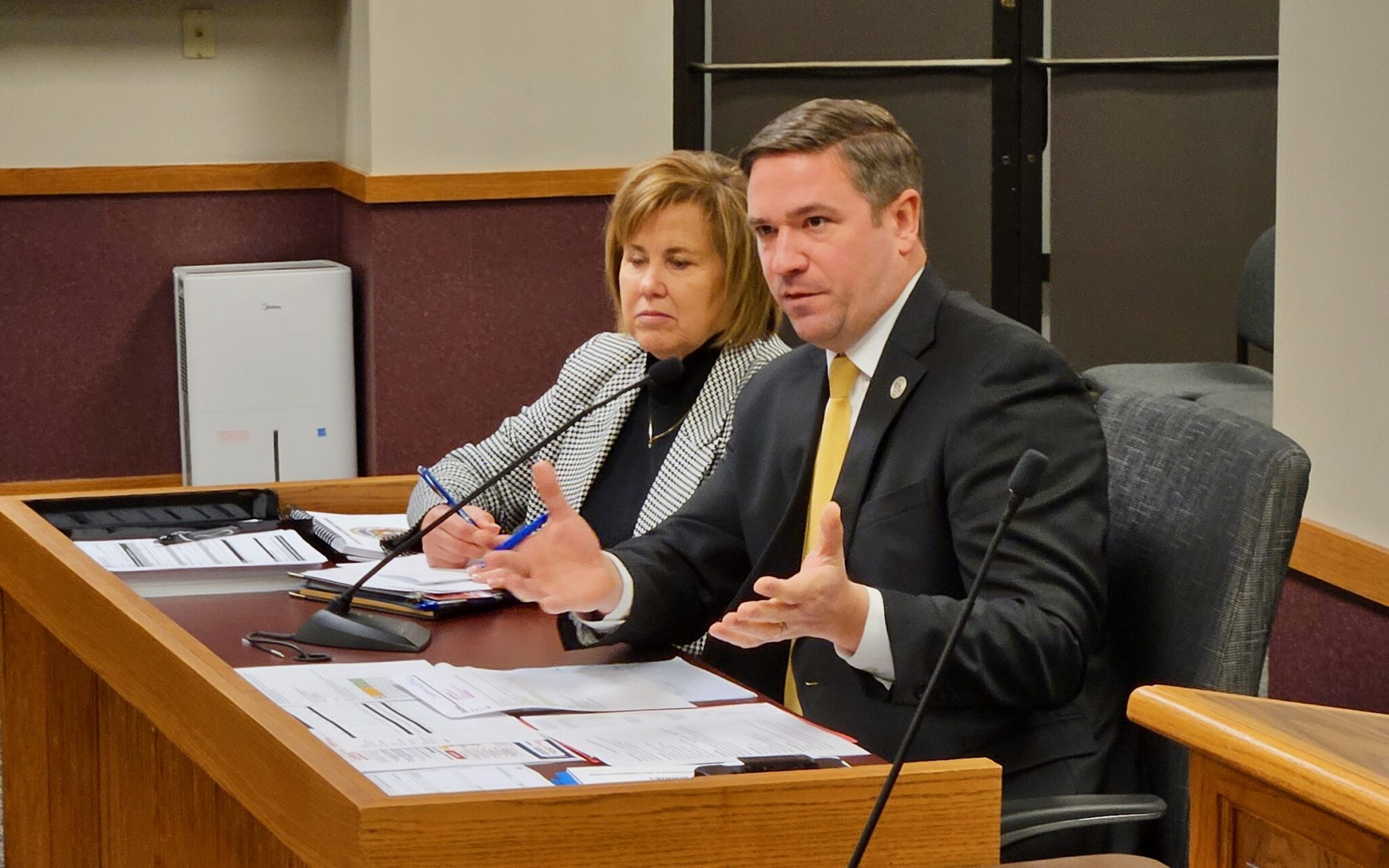Missouri attorney general still working through 2023 Sunshine Law backlog

Missouri Attorney General Andrew Bailey has nearly completed work on a backlog of requests for records submitted to his office by the public last year.
That means work can finally begin processing requests submitted this year.
The 2023 requests were initially supposed to be completed by May. But a spokeswoman for the attorney general said staff turnover, coupled with a huge spike last year in the number of requests for the office’s records, meant the process took longer than anticipated.
As of last week, there were 15 pending requests left from 2023, said Madeline Sieren, Bailey’s spokeswoman.
Bailey was sworn in as attorney general in January 2023, taking over the office after his predecessor was elected to the U.S. Senate. And from the early months of his tenure, Bailey faced criticism over how his office has handled public requests for records.
Those concerns were amplified by the fact that the attorney general’s office enforces Missouri’s Sunshine Law, as well as Bailey’s involvement in crafting a failed proposal to weaken public records laws while working for Gov. Mike Parson.
There were 224 unfinished records requests still pending when Bailey took over, and last year the number of requests submitted to his office ballooned from 468 in 2022 to 784.
Five staffers were assigned to work through the backlog, but Bailey’s policy of handling requests on a first come, first serve basis has created massive delays. Newer inquiries that are small and easily dispensed with sit in limbo for months, even up to a year, as staff works on older and more expansive requests.
For example, a request by The Independent in August for three days of Bailey’s official calendar — typically turned around in a matter of days by other government agencies — wasn’t completed for 10 months.
Sieren said the attorney general’s office is currently projecting new requests will take 60 days to complete. She has also noted the office does not charge for any public records requests, a practice that differs from nearly every other state agencies.
But that’s done little to soothe criticism.
By allowing requests to pile up, and forcing the public to wait months for records that could be quickly provided, the attorney general is not abiding by the Sunshine Law, said Bernie Rhodes, a First Amendment attorney who has represented numerous media outlets, including The Independent.
“Complying with the Sunshine Law is not optional,” he said. “The law states that, ‘each public governmental body shall make available for inspection and copying by the public of that body’s public records.’ The word ‘shall’ is mandatory.”
If government transparency were actually important to Bailey, Rhodes said, he would dedicate the resources needed to ensure his office is complying with the law.
“Choosing to file papers with the U.S. Supreme Court on behalf of Donald Trump is optional, not mandatory,” he said, referencing Bailey asking the court to delay the former president’s sentencing for 34 felonies until after the November election.
“Every lawyer working on that matter,” Rhodes said, “could be working on complying with the Sunshine Law.”
Rhodes notes he’s still waiting on a request he made in March for a copy of the office’s sunshine log — a list or spreadsheet that most government offices maintain that documents pending records requests.
This sort of narrow request historically can be turned around in a matter of days.
Rhodes is still waiting.
Meanwhile, an identical request was filed in August by Jeff Basinger, a Columbia attorney running as a Democrat for the Missouri House. While Rhodes hasn’t received his records, Basinger got a copy of the attorney general’s sunshine log late last month.
Why didn’t Rhodes get a copy of the same records?
“Good question,” Rhodes said. “I have no idea why.”
The sunshine log obtained by Basinger and provided to The Independent documents years of requests — from individuals, reporters, political operatives and organizations.
A frequent inquiry that shows up on the log involves records about companies accused of ripping off customers. The attorney general’s office enforces the Missouri Merchandising Practices Act, which protects consumers from deceptive, unethical or illegal actions by businesses.
“Sunshine requests are used by Missourians to investigate problems and fix them,” Bassinger said. “Denying prompt access to information negates the opportunity for citizens, journalists and public interest groups to effectively address the subject of their concern.”
Miss Clipping Out Stories to Save for Later?
Click the Purchase Story button below to order a print of this story. We will print it for you on matte photo paper to keep forever.

